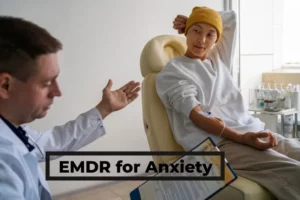Introduction
In a world where mental health issues are so prevalent, having therapists help their clients is what helps them. Importantly, this is why Carl Rogers came up with the idea of client or person-centred therapy. It is to be noted that this is about creating a setting that’s comfortable enough. Here, talk therapy is practiced with the client.
What is Person-Centered
Instead of being considered a medical model, it is a multidisciplinary approach. It puts the patient’s needs in the center to be treated through a non-directive form of therapy. In addition to this, a patient is involved in the decision-making process regarding the treatment process. This consists of planning and educating them as well as keeping track of how they manage their health needs. Equally, the purpose of this form of therapy is to help the patient. This help is done through transforming the way a patient perceives things.
For example, through empathy, understanding, and genuine concern from the therapist’s side. Furthermore, it is important for them to acknowledge the patient as an expert here. The therapists are expected to take a non-directive approach to help them improve. This indeed creates a space for the patient to explore the emotions and process them consciously in a healthy and positive manner.
Person-Centered Care
Person-centered care is all about keeping the patient’s needs in focus to treat them better.
Certainly, this is prioritized so the goals and priorities of the patient are taken into consideration. This is especially inclined towards tailoring the needs of an individual instead of generalizing for a category of patients.
- Moreover, this type of care also includes generating respect for the beliefs, background, and cravings from the treatment as well. Along with this, person-centered care has the process of clear and constant communication.
- At the same time, a person-centered approach doesn’t view the patient as impotent or passive. They are recognized for their capabilities to work on their health and its needs.
- This doesn’t just help the patient get comfortable but also understand the risks or benefits of the treatment they are in.
- Additionally, keeping a patient’s preferences in mind helps the therapy process to be more effective.
Examples of person-centred care
The whole point of this form of therapy is to get the patient involved as much as possible. Along with this, keep the patient’s needs in focus at all times. Following are some of the examples of how person-centered care is practiced.
- Firstly, this personalized care is planned in a way that the goals regarding maintaining the health of the patient are communicated.
- Secondly, decision aids are prescribed with information like treatment options and consequences of it. And importantly, for awareness regarding the conditions. This helps the patients to make decisions for them as they find fit.
- A third example of this would be to empower the patient by communicating with them directly. Along with this, sharing their medical records with them so they are well-informed of their situation in the therapy process.
Altogether, a person-centered approach is also observed in integrated personal commissioning and healthcare professionals involved in the physical healthcare of the patient as well.
Person Centred Therapy
In person-centered therapy, a therapist is usually expected to see the convergence between the thoughts and the actions. A patient’s behaviors are observed, and here, the therapist’s self-awareness is the key. In particular, this form of therapy is focused on providing positive regard for the patient. This is defined as the therapist’s acceptance and care towards the patient. Along with this, it is provided without any judgment, especially irrespective of what they are going through.
Furthermore, empathetic understanding is an important aspect of person-centered therapy. It is considered a requirement so the therapist completely understands the patient’s perspective. Consequently, the purpose of person-centered therapy is to create a space of no judgments so it’s easier for the patient to open up. Because the whole point of this form of therapy is to get the patient comfortable, hence, they can treat their issues with the guidance of a therapist.
Efficacy of Person-Centred Therapy

- If treated properly, a patient always has a scope to deal with their problems better through the help of person-centered therapy. This is achieved by a variety of factors involved, such as the genuineness of a therapist. This eventually leads to better outcomes on the patient’s end because of the trust they are able to build with the treatment over time.
- Secondly, it is to be noted that anxiety disorders and the overall mood of the patient can be lifted. Because of the positive regard from the therapist, it is effective. Equally, it is comparable to CBT in the case of adults if a patient is suffering from anxiety disorders. Read more about From Stress to Success: The Importance of Mental Health Programs in Workplaces
- Importantly, the third is the feeling of empathy presented for the patient. This furthermore presents positive outcomes in the cases of depression and anxiety. In cases like this, patients are usually looking for someone to focus on understanding them only. So, in person-centered therapy, a therapist provides that.
Techniques of Person-Centred Therapy
To achieve positive results from person-centered therapy, a collective effort has to be made.
- In particular, the therapist takes a non-directive approach.
- Meanwhile, the patient is in the lead, aware of the treatment, and accountable for their life. They are held responsible for their decisions and have an independent say in the treatment process. The patient is allowed to make suggestions or at least is consciously aware of the treatment they are taking.
- The therapist is present as a part of the process of making the space comfortable enough.
- Secondly, they provide empathy and congruence and help them practice positive affirmations without any conditions.
- Not just this, but also deeply listening to the patient and accepting them fully is expected.
- Furthermore, reflecting on the perspective along with some open-ended questions, the patient is dealt with. This also helps the therapist get more clarity on the patient’s case, conditions, and requirements.
Conclusion
Person-centered therapy has the potential to help patients. It achieves this by creating situations where the patient can grow and thrive. Additionally, with support, genuineness, positive guidance, and feelings of empathy, the patient gets better outcomes from life. This type of care believes in the patient’s ability to deal with their health. Along with this, they are trusted when it comes to decision-making in the treatment process.
Moreover, this person-centered care and therapy have a basic requirement. This is to create a safe, supportive, and judgment-free zone for the patient so they can be vulnerable regarding their feelings. Even researchers now prove that a therapist can help the patient with this form of care. Not just this, but person-centered principles can also be applied in healthcare when it comes to empowering patients. In summation, it’s focused on helping the patients manage their health as they take the lead to do so.
References
- C. R. Rogers, “Significant aspects of client-centered therapy,” Am Psychol, vol. 1, no. 10, pp. 415-422, 1946. doi: 10.1037/h0060866.
- K. A. Moon and B. Rice, “The nondirective attitude in client-centered practice: A few questions,” Person-Centered & Experiential Psychotherapies, vol. 11, no. 4, pp. 289-303, 2012. doi: 10.1080/14779757.2012.740322.
- G. G. Kolden, C.-C. Wang, S. B. Austin, Y. Chang, and M. H. Klein, “Congruence/genuineness: A meta-analysis,” Psychotherapy, vol. 55, no. 4, pp. 424-433, 2018. doi: 10.1037/pst0000162.
- B. A. Farber, J. Y. Suzuki, and D. A. Lynch, “Positive regard and psychotherapy outcome: A meta-analytic review,” Psychotherapy, vol. 55, no. 4, pp. 411-423, 2018. doi: 10.1037/pst0000171.
- R. Elliott, A. C. Bohart, J. C. Watson, and D. Murphy, “Therapist empathy and client outcome: An updated meta-analysis,” Psychotherapy, vol. 55, no. 4, pp. 399-410, 2018. doi: 10.1037/pst0000175.
- D. M. Erekson and M. J. Lambert, “Client-centered therapy,” in The Encyclopedia of Clinical Psychology. John Wiley & Sons, 2015, pp. 1-5. doi: 10.1002/9781118625392.wbecp073.
- S. K. Kim and M. Park, “Effectiveness of person-centered care on people with dementia: a systematic review and meta-analysis,” Clin Interv Aging, vol. 12, pp. 381-397, 2017. doi: 10.2147/CIA.S117637.
- P. Cuijpers, E. Driessen, S. D. Hollon, P. van Oppen, J. Barth, and G. Andersson, “The efficacy of non-directive supportive therapy for adult depression: A meta-analysis,” Clin Psychol Rev, vol. 32, no. 4, pp. 280-291, 2012. doi: 10.1016/j.cpr.2012.01.003.
- C. P. McLean, R. Yeh, D. Rosenfield, and E. B. Foa, “Changes in negative cognitions mediate PTSD symptom reductions during client-centered therapy and prolonged exposure for adolescents,” Behav Res Ther, vol. 68, pp. 64-69, 2015. doi: 10.1016/j.brat.2015.03.008.










